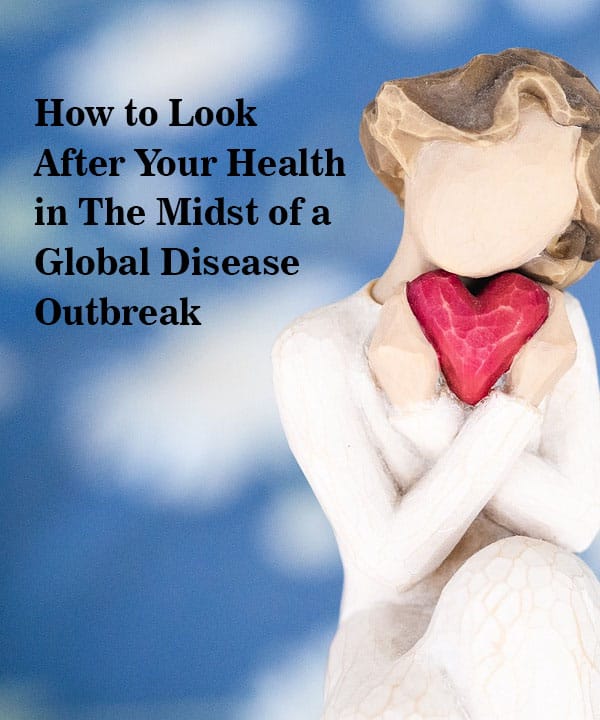The recent coronavirus outbreak has rapidly grown into a pandemic, with numerous countries around the world now on lockdown in order to minimize the spread of the disease. Keeping healthy is vital during this time, not only so that we can avoid catching coronavirus, but to prevent passing it onto more vulnerable people who will suffer more. Of course, looking after your health is important in the usual day to day, but it is all the more important now.
With many people working from home, limiting contact with others and generally exercising caution for most scenarios, there are a number of different ways we can look after our health in the comfort of our own homes and on the go. Whilst it is impossible to predict what is going to happen in the near future with coronavirus and how it will affect everyone individually, taking steps to prevent further spread and infection is the best thing you can do to maintain some control of the situation.
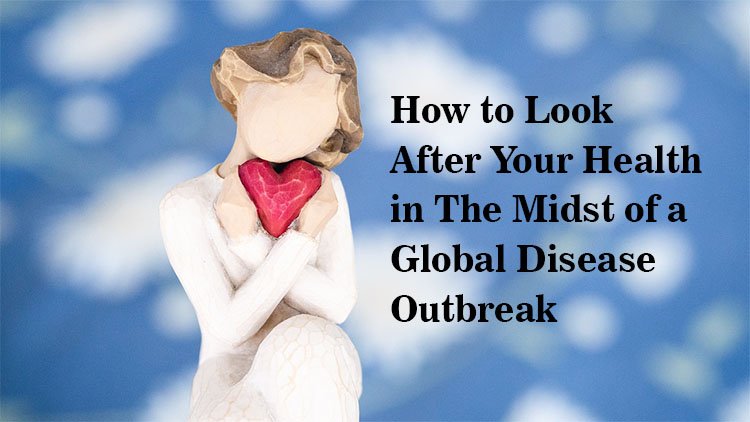
Create a Household Plan of Action
It is likely that, if you haven’t been advised to already, families will be put on lockdown in their homes. It is important to create a plan of action for when this happens, especially if your family has vulnerable or elderly members who are more at risk. Sit with your family and talk about what the needs of each person will be, for example, if your children are told not to attend school or if you need to work from home. Then, create a plan surrounding this should one of you get sick.
It is advised that if you live with other family members and you contract coronavirus, then you must keep your distance from them so that you minimize the risk of spreading it. Choose a room in your home which you will use as a “sick room” should you or any of your family members get ill. Of course, if you are isolated together, you will obviously need to help them with food and water, so be sure to keep your distance if you can.
Remember, if you have vulnerable or elderly family members outside of the home, you must keep away from them for the time being. This can be hard, especially as it is such a sudden and instant change, but it is for the best. If you live in a community where there are elderly people, be sure to check in on them too as they may not have anyone to talk to or ask for things if they need them.
Wash Your Hands Regularly
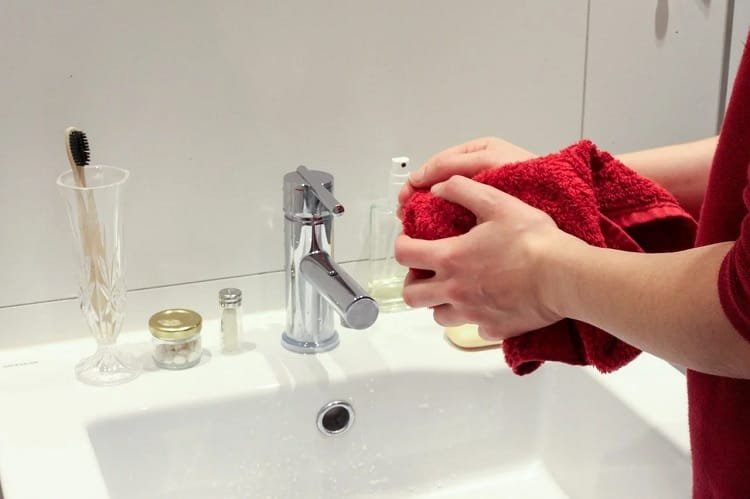
We’re all aware of the fact that we need to be washing our hands much more frequently, as this is one of the best ways we can stop the spread of germs and viruses. Washing your hands is one of the easiest ways to protect yourself and others and is one of the best ways to look after your health.
You should be washing your hands for at least 20 seconds, or the amount of time it takes you to sing “Happy Birthday” twice and be sure to wash your hands, palms, thumbs, wrists and fingertips. You should be washing your hands when you go to the toilet, cough or sneeze, when you come in from outside and before and after you eat.
If you can’t wash your hands, then using an antibacterial hand sanitizer will work, but nothing is as effective as properly washing your hands. Many people are finding that because they are washing their hands more frequently, their hands are getting dry and chapped. Following up your handwashing with a soothing balm or moisturizer will help to protect them.
Eat a Healthy Diet
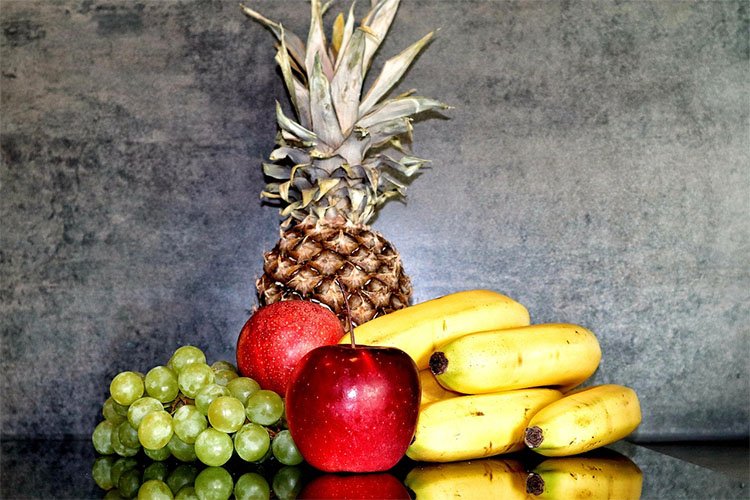
It is important now more than ever to eat a healthy diet. Most people will now be leading a fairly sedentary lifestyle at the moment if they are in lockdown as they are unable to get out and about, so eating a healthy and balanced diet will make you feel much better.
Foods containing vitamins C and E are better at supporting the immune system, so try to eat vitamin E rich foods such as sunflower seeds, almonds and peanuts and things like broccoli, green peppers, orange juice and fruits for your vitamin C intake.
There has been a global issue with people stockpiling foods and there are current recommendations from WHO and governments to not go into a supermarket if you can avoid it. This will obviously impact what you can purchase food-wise, so try to make healthy choices when you can. Try to reduce your intake of concentrated sugar, such as sweets and fizzy drinks, as it is believed that this can damage your immune system response.
If you do contract coronavirus, then you may not feel like eating for a few days, so just eat what you can when you can. It is important to stay hydrated with water, but soothing warm drinks are said to help.
It is also important to stay on top of your vitamin and supplement intake, as these will help to make sure that your body is at its full potential to fight a virus. Vitamin C is one of the better vitamins to take, but things such as fish oil and zinc are also good daily vitamins too.
Look After Your Mental Health
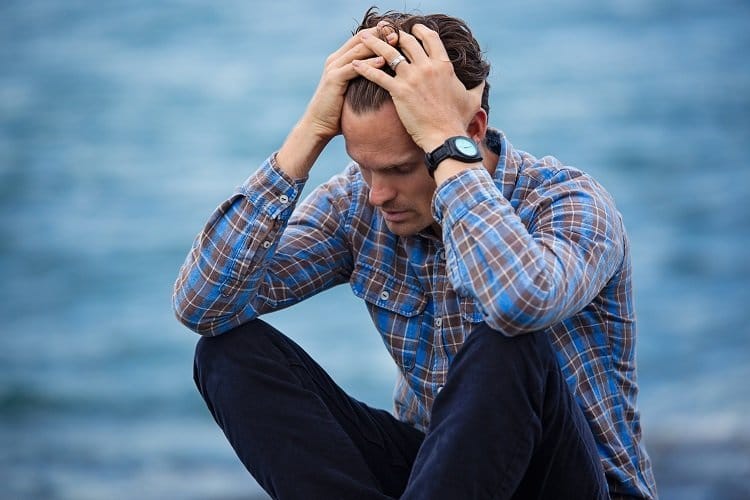
The spread of coronavirus has plunged the whole world into a sense of uncertainty and the almost constant news updates can feel relentless and panic-inducing. Already, this pandemic is having a profound effect on people’s mental health, especially for those who already live with conditions such as anxiety and OCD.
Being concerned with the news is normal and totally understandable, but for a lot of people, it can make pre-existing mental health conditions even worse. Thankfully, WHO has recognized this and have provided advice on looking after your mental health during the outbreak. For many people dealing with mental health problems, often the fear of not being in control and being unable to tolerate uncertainty are very common characteristics, so the coronavirus pandemic is likely to be a huge burden. A lot of anxiety is centered around the worry about the unknown and almost waiting for something to happen, of which coronavirus is that on a mass scale. There are some things you can do to control your anxiety:
- Limit your news intake
Try to limit the amount of time you spend watching or reading things which aren’t making you feel any better. Try to remember that, in this day and age, news outlets are more interested in clicks and sensationalism, rather than reporting facts. With social media, there is also a lot of wrong and damaging information being circulated, which is then regarded as news. Try not to believe everything you see and read and instead stick to trusted sources, such as the NHS, WHO and government websites.
- Wash your hands, but not obsessively
Of course, we’re all washing our hands more in an effort to reduce becoming infected. However, for people with OCD and anxiety, being told to wash your hands can be difficult to hear. For a lot of people with OCD, hand washing is a very specific and precise action which is done to make them feel in control of a certain situation. If this is something you suffer with, avoid over-washing your hands and instead, if you can, try to include some of the new hand washing recommendations.
If you are in self-isolation in your home and are following current guidelines which say to stay indoors and away from others for up to two weeks, this can quickly lead to feelings of stress and frustration. If you can, try to do things which occupy your mind.
Avoid the TV and try out a new online workout video, read an e-book, try cooking or baking or even just color in. You can go out into your garden and, depending on government advice, you can go outdoors in spaces where there are few people, such as your local park, so try to have a 10-20 minute walk every day to clear your mind and get fresh air. Keep connected with people, even if you can’t go out of the house. Phone calls, messages, video chats and even by post are ways that you can still converse with people. It is important to not completely isolate yourself from others, as this will probably make you feel worse.
This is a very concerning time for everyone and coronavirus is likely to affect us all in some way, shape or form. Remember to look after your health and think of others, especially the elderly and more vulnerable, during this time.
Author bio: Natalie Wilson is a freelance health and wellness writer. She loves researching and writing about new health trends and topics, health businesses such as Nutri Advanced, and keeping up to date with the latest health news. When not writing, you can find her taking long walks in the countryside with her dog or browsing her nearest bookstore. You can connect with her on Twitter @NatWilson976.
